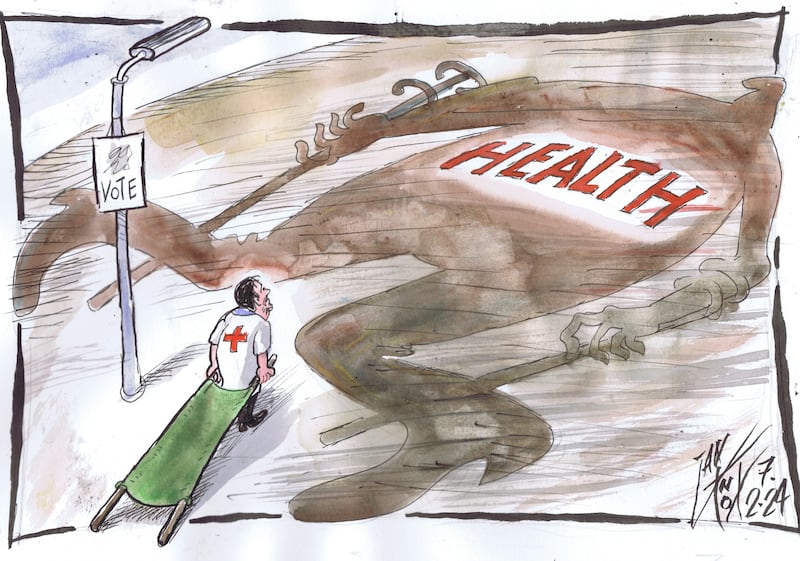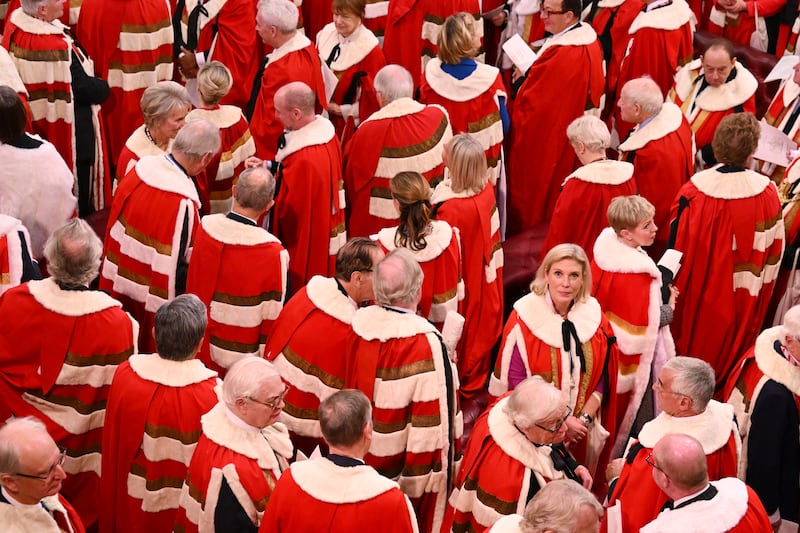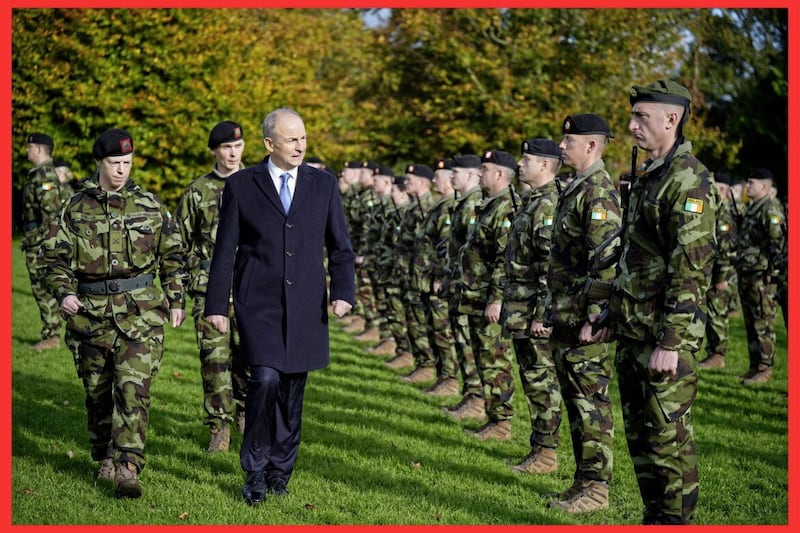Whatever else may divide them, all four executive parties have been immediately able to issue a joint statement asking London for more money.
As well as a larger lump sum than the £3.3 billion that has been offered, they want a higher ‘fiscal floor’. The government says the floor should be 124 per cent of public spending per head in England, as calculated by the independent Fiscal Council, using a needs-based formula. Alliance says it should be 127 per cent as the formula was devised before policing and justice were devolved.
Alliance’s case has been endorsed by Prof Gerald Holtham, the economist who developed the needs-based formula for use in Wales over a decade ago. Although this is a strong argument, it rests on Northern Ireland’s unique security situation and puts an interesting spotlight on its cost. If the situation improves, should the floor fall? Should funding for ‘paramilitary transition’ be seen as an investment in this direction?

**
As the fiscal floor is to become a feature of our politics, you can be the envy of your friends by knowing how it is calculated. Prof Holtham’s formula uses just six variables: the proportions of the population who are under 16, retired, on benefits, from an ethnic minority, in a settlement with fewer than 10,000 inhabitants, or with a long-term illness.
Some of Northern Ireland’s higher need is fixed by geography and demography, as we have UK’s most rurally dispersed population and its youngest outside London.
However, most is due to poor public health and low productivity. One of Stormont’s goals in negotiating with the Treasury should be confirming it can reduce these problems and still keep the extra money.
**
Newry MLA Justin McNulty departed Stormont early last Saturday and boarded a helicopter to Wexford for his second job as Laois GAA coach. This is clearly untenable and the SDLP was right to suspend the whip. A better time to bring matters to a head would have been last March, after a public meeting with health managers over Newry’s Daisy Hill Hospital, during which McNulty mocked “your beloved Bengoa report” on health reform.
Like all Stormont’s main parties, the SDLP has adopted Bengoa as policy. The executive can hardly be held to account on the most important challenge it faces when the opposition lacks credibility on the issue.
**

The UUP has suffered an early stumble at Stormont, potentially more serious than that of the SDLP. The party has appointed Robin Swann as health minister, despite planning to run him for Westminster. UUP assembly member Andy Allen criticised this on social media, leaving leader Doug Beattie flustered.
Swann is now open to accusations of being a distracted, short-term minister in charge of Stormont’s most urgent task.
Controversy over abortion also appears likely. Swann refused to commission abortion services during his last spell as minister, claiming the executive had to vote on it. The government eventually had to intervene over his head.
Services have since been established for pregnancies up to 12 weeks but provision beyond that to the 24-week maximum remains patchy.
**
In an article for Monday’s Belfast Telegraph, prime minister Rishi Sunak wrote: “The government will always give full and equal respect to constitutional nationalism and the desire for a united Ireland, pursued through peaceful and democratic means.”
This seems to have calmed an argument about the “rigorous impartiality” requirement in the Good Friday Agreement, judging by conciliatory comments the same day from Taoiseach Leo Varadkar.

Last week, Varadkar said the government’s pro-union deal with the DUP breached the requirement. SDLP leader Colum Eastwood added that it breached another requirement for Irish self-determination to be free from “external impediment”.
Rigorous impartiality refers to non-discrimination in the governance of Northern Ireland. This includes the organisation of a border poll but it does not prevent a British government being in favour of the UK’s existence.
External impediment means electoral interference. It does not require the rest of the world, Britain included, to be neutral.
The real problem with the deal is that it arose from bilateral talks with the DUP. This was not impartial, sensible or even necessary. Much of its pro-union content was in New Decade, New Approach, also as a sop to the DUP. But both governments and five parties signed it off, so nobody cared.
The real problem with the deal is that it arose from bilateral talks with the DUP. This was not impartial, sensible or even necessary. Much of its pro-union content was in New Decade, New Approach, also as a sop to the DUP. But both governments and five parties signed it off, so nobody cared
**

Labour is reportedly about to drop its pledge to scrap the House of Lords within one term of office. The policy was adopted last year, after being recommended by a commission led by former prime minister Gordon Brown.
Major reform was never likely as it would consume vast amounts of government time. However, the policy still offers an intriguing future for the UK as something more like a federal state. Brown wants the Lords replaced with an elected “assembly of the nations and regions”, in which Northern Ireland would play its part.
The DUP might have shown a bit more interest in this, considering the fuss it has made about a powerless new ‘east-west council’ in its deal with the Tories.
**
Thousands of householders across Northern Ireland are having businesses registered at their address, without their knowledge, by Chinese firms and individuals.
Following coverage in The Irish News of this dubious practice, the Chinese embassy in the UK has complained of “malicious defamation” against its citizens and “suppression of Chinese companies”.
The bizarre statement suggested Beijing resents the implication it does not have its citizens under control. The embassy might instead have pointed out that Companies House does not have its register under control.
Next month, a new law will make it easier for householders to have their details removed but it is still hopelessly inadequate. False addresses should not be registered in the first place.
**

Influential Westminster think-tank Policy Exchange has criticised the Republic for “freeloading” on Nato. In a report backed by Conservative and Labour former defence secretaries, it warned that a Sinn Féin government would make Ireland “an uncooperative, and likely hostile, neighbour in the face of growing external threats”.
Or maybe not. A secret Anglo-Irish air defence cooperation agreement, operating since the early 1950s, came to light last year. Sinn Féin demanded “full disclosure” in the Dáil but did not criticise the agreement itself. It merely condemned the Irish government for not investing in the Defence Forces.
A cynic might say no party in Ireland has more experience of cooperation with the British military, although this is unlikely to be said by Sinn Féin or any former UK defence secretaries.



